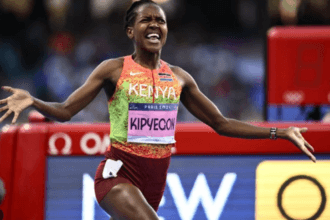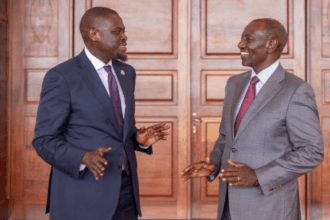
Cameroon’s long-serving leader, President Paul Biya, has been re-elected for an unprecedented eighth term after securing 53.55% of the vote, according to official results announced by the country’s electoral commission.
At 92 years old, Biya remains the world’s oldest serving head of state, extending his more than four-decade rule over the Central African nation. His main challenger, Maurice Kamto of the Cameroon Renaissance Movement (CRM), gathered 35.4% of the vote, while several minor candidates shared the remainder.
Election Marked by Low Turnout and Tight Security
The election, held amid growing discontent over economic hardship and insecurity in the Anglophone regions, recorded a low voter turnout in several parts of the country. Reports indicated heavy deployment of security forces in key urban areas to prevent post-election unrest.
Opposition leaders have already raised concerns about the credibility of the polls, citing alleged irregularities and intimidation of voters. The government, however, has dismissed the claims, insisting the votes were free and fair.
Biya’s Enduring Grip on Power
President Biya has ruled Cameroon since 1982, making him one of the world’s longest-serving leaders. Over the years, he has maintained a firm grip on the political landscape through his Cameroon People’s Democratic Movement (CPDM), which continues to dominate parliament and state institutions.
Critics accuse Biya of authoritarian tendencies, suppression of dissent, and failure to address economic inequality. Supporters, on the other hand, credit him with maintaining relative stability in a region often marked by political turmoil.
Regional and International Reactions
African leaders have congratulated Biya on his victory, calling for peace and unity in the aftermath of the polls. However, human rights groups and Western observers have urged the Cameroonian government to pursue reforms, promote national dialogue, and address grievances in the Anglophone regions.
As Biya embarks on another seven-year term, questions linger over succession, governance, and the country’s democratic future, especially as he continues to rule well into his nineties





